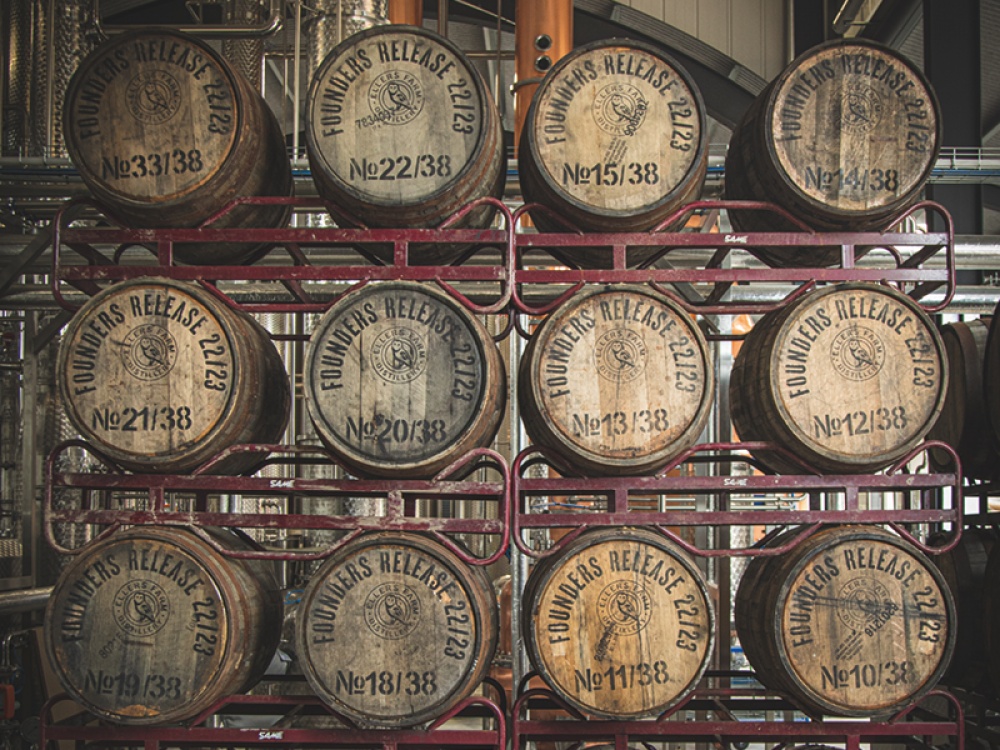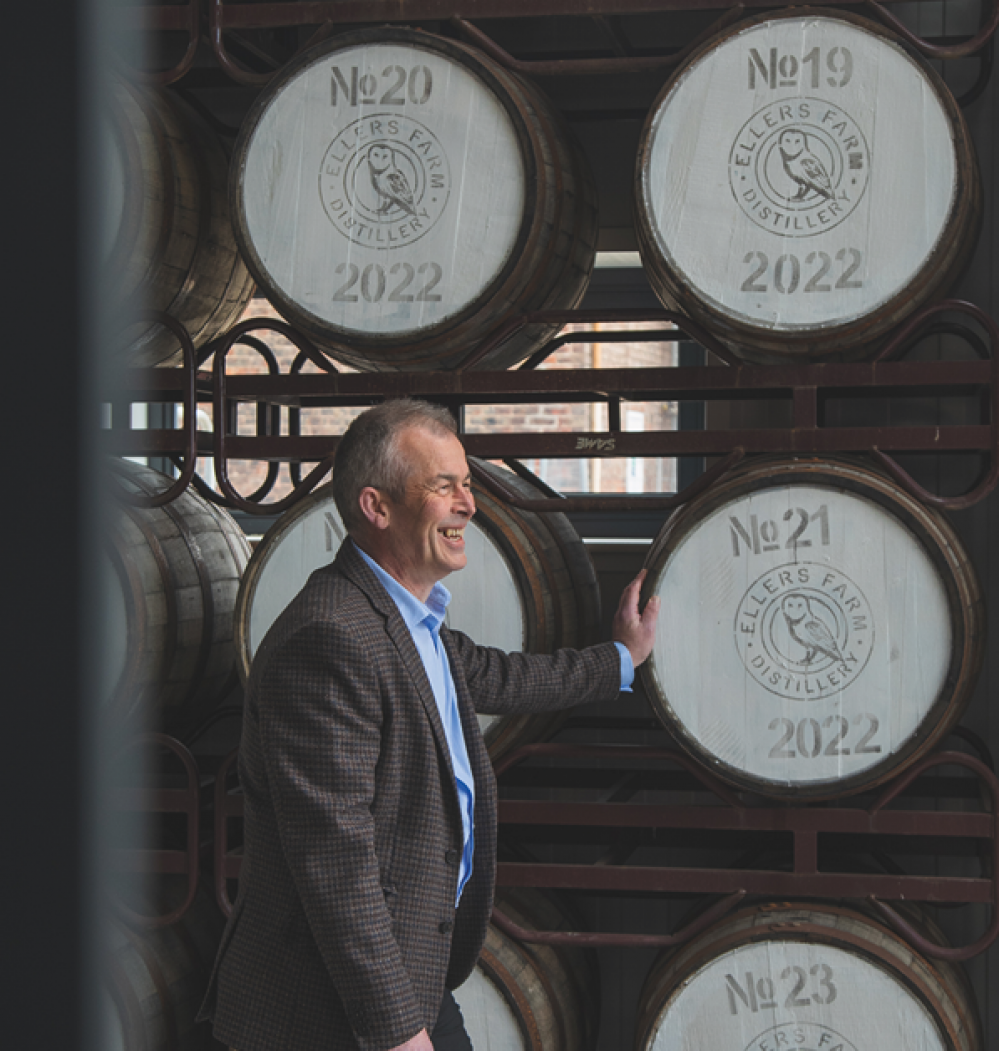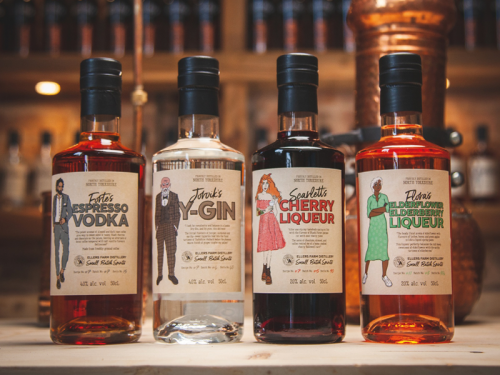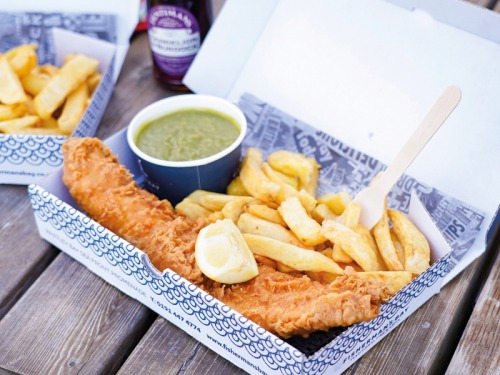Meet the Master Distiller Making Vodka Out of Apples on His North Yorkshire Farm

In the heart of the North Yorkshire countryside, Ellers Farm Distillery is one of the largest state-of-the-art distilleries in the country
Ellers Farm Distillery’s journey began with the unique idea of making vodka out of apples, which led to the launch of Dutch Barn Orchard Vodka. ‘When I started at Ellers Farm, founder Chris Fraser told me that the idea came after he was getting tired of seeing apples all over the floor with nobody using them. Deciding to do something about it, he bought himself a cider press to make some cider,’ Jamie says. ‘Chris does Ironman events and soon found he was putting too much weight on, so he decided to look at another way of using the apples. A friend of his said he thought he could make alcohol from apples, so Chris bought himself a still and had a go at making a vodka-esque drink.’
Realising the potential of apples, Chris then decided to recruit a team to create a business making vodka and spirits from British apples. He brought Jamie (who has won more than 200 national and international awards across all spirit categories, including World’s Best Vodka) on board as master distiller. ‘The first part of my role was to procure and design all the equipment for the distillery,’ Jamie says. ‘What a lot of people don’t know is that there are very few vodka producers in the UK – there are about 450 distilleries with probably only seven making vodka themselves. People buy the base spirit in and make the spirit from there, and that’s the same for gin as well. The difference between buying in and creating the spirit yourself is like night and day,’ he explains.
Read More: We Discover Why We Should all Be Drinking English Wine with Little Wold Vineyard's Alice Maltby
From the very beginning Ellers Farm Distillery has had sustainability at its core and they are committed to being carbon neutral. The team intend to become leaders within the spirits industry, working with like-minded people to help change the industry for good. From measuring their carbon emissions to supporting reforestation projects around the world, Ellers Farm are taking action now. This however does make the distilling process rather more complicated for Jamie. ‘It’s horrible, but for all the right reasons,’ he jokes. ‘A lot of people claim that they are sustainable because they’ve offset the carbon footprint from the delivery [of ingredients], but they don’t investigate how the product gets to where they bought it from, how it was manufactured or what the carbon footprint is. Tabatha Hurst came on board [as head of sustainability at Ellers Farm] and does all this investigation for us,’ he continues. ‘It makes you think a lot more about where you’re sourcing ingredients from and we look for other ways to source the quality ingredients we need.’

In the early stages of starting the business Ellers Farm reached out to locals to help source some of the ingredients which are used in their small batch spirits, including their fruity liqueurs and gins. ‘Last year as we were just starting, we put a marketplace on social media asking people to bring in any sloes or damsons so we could offer them fair market value or exchange them for a bottle of sloe gin. We had a couple of locals, including one lady who filled my freezer up with sloes and damsons, and her sloes went into this year’s batch of sloe gin – you can’t get any more local or sustainable than someone half a mile down the road picking from the hedgerows,’ Jamie says.
However with apples being the core ingredient for the Dutch Barns Orchard Vodka it’s crucial they are sourced both sustainably and locally. ‘I could bring apple concentrate in from the continent at a cheaper price, but the quality is not as good, and also why would you want to when there is a source within the UK?’ Jamie says. ‘We’ve already started an orchard planting programme of up to 22 acres and we have done the first three acres with 480-plus trees. The apples are all indigenous, British varieties and we’ve selected a mix – from culinary eating apples and bitter sweet cider apples to ones which are on the endangered list,’ he adds.
‘The core product is vodka and it’s about making it the best it can be. Most people look at big brands who go on about triple distillation and they think, well that must be good, however nobody really understands what that process is,’ Jamie says. ‘When you look at the vodka market there are no double-distilled vodkas, and the reason for that is that the minimum amount of work you have to do to create a vodka to make it legal is to triple distill it. The still I’ve designed [for Ellers Farm Distillery] means we distill our vodka 51 times. The reason being, the more times you distill vodka the higher the quality becomes, and the interaction with copper also makes it smoother – vodka shouldn’t burn your throat.
Read More: How Northumberland Coffee is Serving Speciality Coffee Across the County
‘We’ve done a few things very differently and most vodkas you see are in a clear or frosted bottle, but we’ve gone for a brown bottle which is a brave call,’ Jamie says. One of the reasons for this is to source locally in Yorkshire and to use bottles which are made from 60 percent recycled glass. The other reason is that, scientifically, it protects the flavour of the vodka. ‘There is a process called light stripe which affects the flavour of beer and that’s why it normally comes in a brown bottle. We did some light experimentation with the University of York and we found some of the fruit and floral flavours (which are very light in vodka anyway as it’s a neutral product) were maintained when in a brown bottle, but those flavours dissipated in the clear bottle. You’ve therefore got the best chance of tasting our vodka as it is at the distillery by having it in a brown bottle,’ Jamie explains.
Creating a multifunctional still means it can be used to make more than just vodka. In their most recent project, Ellers Farm have launched their own line of whisky. ‘Chris talked about doing whisky in the beginning and we designed the still to do whisky as well. The fundamentals in creating a whisky mean making a beer wash out of barley and as a distiller you make this wash by grinding down the barley, boiling it up and trying to get the best sugar conversion,’ Jamie explains. ‘Whisky can’t have hops in it, so we have to use an unhopped beer wash and it was important to collaborate with a brewer who loves making beer, as it means they care about the wash they are producing,’ he adds.
Read More: The Ultimate Northumberland Road Trip: Northumberland 250

Partnering with local brewery Theakston, Ellers Farm have created a whisky collaboration like no other. Working with the brewery’s master distiller, Jamie designed a beer wash which allows the alcohol to be removed from the beer, maintaining some of its flavour before being put into cask. ‘It gives us a deep, dark, almost malty finish and it will age really well,’ he says. ‘You can’t do anything with whisky for three years, but there is a new category called new-make spirit, which is the white whisky before it goes into a barrel. The flavour profile is really good and the feedback from the consumer is that you can absolutely tell where it comes from – they identify it as having that whisky flavour but say it’s also a lot better on the palate than they’ve tried at other distilleries because you’re starting with a much better quality product to begin with.
‘We’re doing some aged expressions of the new-make whisky, including a six, 12, 18 and 24 month age statement release. We’ve also done a Founder’s Release whisky where you can buy a cask which we will manage all the way for the first five years of its life.’
Ellers Farm Distillery plan to continue to grow and live up to their vision of being leaders in the spirits industry. ‘We have grand expectations and we want Dutch Barns Orchard Vodka to be a global brand, and the still (at Ellers Farm Distillery) has the capacity for that.’ With the expansion of the whisky line, the continued development of the distillery and the commitment to carbon neutral status, watch this space.







